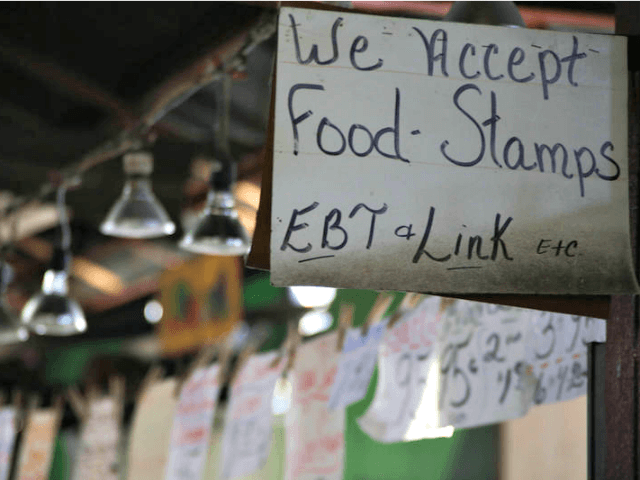Federal authorities have warned the state of Illinois that it could face significant fines for over-issuing food stamps to individuals who did not qualify to receive them, according to a report released Monday.
The U.S. Department of Agriculture (USDA) sent a letter warning Illinois Department of Human Services (DHS) Secretary James Dimas of the fines after USDA officials discovered the state had several problems issuing food stamp benefits to a “significant portion of the Supplemental Nutrition Assistance Program (SNAP) caseload,” according to the Illinois News Service.
Federal officials say the state ignored reporting requirements for a large portion of the SNAP caseload and issued food stamps to people who were not supposed to receive them under federal law between November 2017 and January.
“What you have is a warning sent from the Trump Administration to Illinois saying, ‘We think that you’ve over-issued food stamp benefits to a significant portion of the SNAP caseload,’ ” said Sam Adolphsen, vice president of executive affairs with the Foundation for Government Accountability.
An Illinois DHS spokesperson said the issue began under former Gov. Pat Quinn, the Democratic governor who preceded Republican Gov. Bruce Rauner.
“Before the launch of [the Integrated Eligibility System], we identified an issue with the design that was created during the previous administration and had the potential of over-issuing benefits,” Illinois DHS spokeswoman Meghan Powers said. “We are currently in the process of implementing a technology fix that will eliminate the need of the workaround moving forward.”
In 2017, 14 percent of Illinois residents, amounting to approximately 1.8 million individuals, received SNAP benefits. Approximately 42.1 million Americans were enrolled in the food stamp program in the fiscal year 2017.
Adolphsen said the state needs to follow federal guidelines that require food stamp benefit recipients to work, volunteer, or partake in job training to receive assistance to cut down on the backlog in the SNAP system.
Several other states that have gradually implemented work requirements—including Alabama, Georgia, and North Carolina—all have experienced significant decreases in SNAP enrollment.
Illinois acquired a waiver from federal work requirements in 2018 in every county except DuPage County, citing high unemployment numbers throughout the state. But experts predict that falling unemployment in the state and throughout the country would make it hard for the state to get a waiver from the work requirements in 2019.
Although the food stamp work requirements are federal guidelines, they have not been signed into law nationwide.
President Trump had urged Congress to pass federal legislation to implement food stamp work requirements nationwide in the 2018 Farm Bill.
The House version of the Farm Bill narrowly passed by a 213-211 vote and included the work requirements provision. The bill passed with no Democratic support. The Senate bill did not include the food stamp provision. The previous year’s Farm Bill expired at midnight on Sunday.

COMMENTS
Please let us know if you're having issues with commenting.